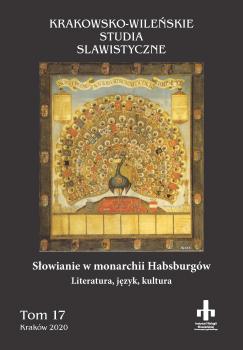Habsburgowie wobec ortodoksji w kontekście duchowo-kulturalnym Kościoła unickiego w XVIII i XIX wieku .......... 141
Streszczenie
ОТНОШЕНИЕ ГАБСБУРГОВ К ПРАВОСЛАВИЮ В ДУХОВНО-КУЛЬТУРНОМ КОНТЕКСТЕ УНИАТСКОЙ ЦЕРКВИ В XVIII–XIX ВВ.
Габсбурги поддерживали политику укрепления унии, отодвигая духовное образование на задний план. В результате первого раздела Польши в 1772 г. Малопольша-Галиция вошла в состав Австрийской империи, и с тех пор име-ет место процесс реориентации в Львовской и Перемышльской униатских епархиях имел место процесс переориентации с греческой, византийской традиции на западную – латинскую традицию в фольклорном и националь-но-украинском направлении. Реформы императора Иосифа II (1780–1790) сводились к безусловному подчинению всех областей религиозной жизни государственной власти. После ликвидации императором Манявского скита в 1786 г. вся Галицкая Русь оказалась в руках униатов. Интеллектуальное об-учение духовенства, согласно политике иосифизма, имело целью включить его в структуры государственного механизма. В 1818 г. был введен закон, разразрешающий переход на латинский обряд без одобрения Рима. Боясь возвращения униатов к православию, император Франциск Иосиф поддер-жал латинские стремления: „я был бы счастлив, если бы вся Галиция стала римо-католической”. Ватикан и венское правительство, видя священников и народ, направлявшихся в сторону Петербурга и желавших вернуться в православие, поддержал националистическое украинское направление. Французский рационализм и австрийский иосифизм, стремившийся в Австрийской империи образовать государственную Церковь, становит-ся формой отношения к Церкви. Духовное богатство православия, прочно связанное с источниками раннего христианства, было отброшено и модер-низовано в соответствии с западноевропейской моделью.





